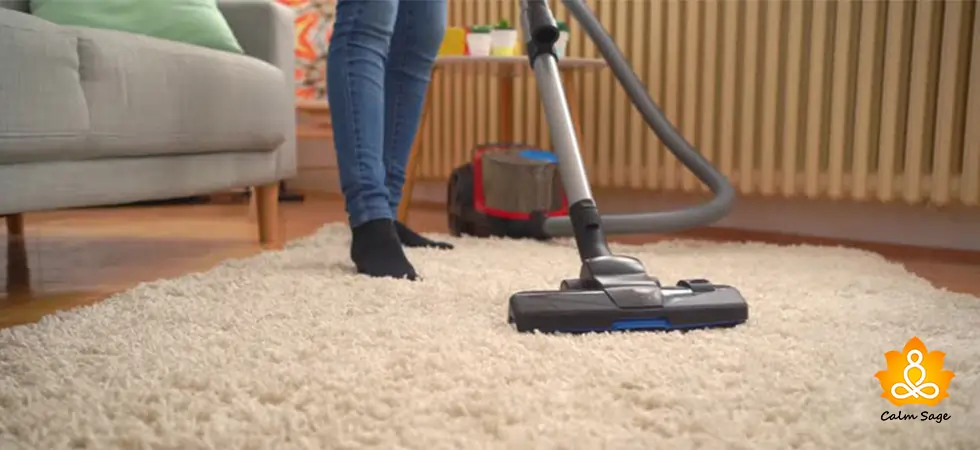Narcissists are manipulative, and engaging with one can be draining as it is. They use tactics to manipulate others to the end, leaving others with no confidence and little to no self-worth. At that stage, you have no choice but to leave the toxic relationship behind. That’s when hoovering comes in. Hoovering is a manipulative tactic where the narcissist “sucks” you back into the relationship.
This kind of behavior comes when the narcissist is afraid that others will get away from them. To keep others in the relationship, they use other tactics such as love bombing, stalking, or even crying to take the other person’s energy and time, keeping them forcefully in the relationship.
However, it’s not just narcissists who engage in hoovering. Anyone with personality disorders, such as borderline personality disorder (BPD), narcissistic personality disorder (NPD), and antisocial personality disorder, can use hoovering as an emotional manipulation tactic.
Let’s learn what hoovering someone means, what it looks like, and how you can deal with hoovering.
What is Hoovering?
In psychological terms, hoovering is a type of emotional abuse and manipulation that occurs when a narcissist typically feels that someone is leaving or wants to leave the relationship. To keep others in the relationship, a narcissist tries to gain attention even if it’s negative, to lure the other person back into their relationship. To do so, a narcissist might use other tactics such as gaslighting and love bombing.
Insecurity, fear, or relationship uncertainty can cause anyone to hoover. While this manipulative tactic is generally related to narcissists, people with other personality disorders can also engage in it to keep their relationships and life from crumbling around them.
Emotional dysregulation is a common challenge for those with personality disorders, causing low self-worth. People with personality disorders experience frequent mood swings, erratic behavior, feelings of emptiness, and a need for attention.
Hoovering Examples in Real Life
Hoovering can happen in any relationship – romantic, family, or friendship. If hoovering continues in a relationship, then it can become toxic, and over time, hoovering can become a distorted way of communication between people involved.
Common hoovering examples you can see in real life can include:
- Threatening self-harm, divorce, or other such threats if things don’t go their way
- Stalking others and bugging them until they respond
- Love bombing or excessively giving gifts to keep others’ attention
- Lying and gaslighting others to gain their attention
- Briefly ghosting others or being in contact more than what’s needed
- Over apologizing for their behavior in the past and saying they will change
- Making promises to get others to stay with them
- Guilt-tripping others to stay in the relationship
Why Do Narcissists Hoover?
Some reasons a narcissist may engage in hoovering can be:
Their sense of entitlement
Because narcissists have a sense of entitlement, they feel everyone owes them something. This can be one reason why narcissists hoover.
Their need for control
Narcissists need to control everything, and this includes others around them. If you feel the need to leave the relationship, then the narcissist might believe that they are losing control of you. This might lead them to engage in hoovering.
Their fear of abandonment
Another reason for narcissists hoovering is their fear of abandonment. The mere thought of someone leaving them is enough to trigger panic and insecurity, urging them to use hoovering as a tactic to make others stay.
Their need to feed their ego
Narcissists love attention, and they would do anything to feed their ego. When you distance yourself from them, they feel they will not get their fill of ego boosts, so they hoover to keep that steady supply of ego and attention going.
Their lack of emotional understanding
Another reason for narcissist hoovering is emotional dysregulation. Narcissists need external validation and hoovering could be their way of needing that while easing the emotional distress they feel.
How to Deal with Narcissistic Hoovering?
Hoovering can be painful for the one on the receiving end of it, so you need to understand how to deal with narcissistic hoovering. Here are some strategies for you:
Identify hoovering
You can start by looking at the patterns. See if you’re a victim of hoovering. Identifying the patterns can help prepare you to counteract the manipulation.
Take care of your mental health
Make sure you engage in self-care. Self-care helps you maintain your self-esteem and self-worth, which hoovering can affect. Taking care of your mental health can help you fight narcissist hoovering.
Set boundaries
You can also set boundaries and communicate them to the narcissist hoovering. Let them know what you can accept and what you can’t. Boundaries are there to protect your mental health, so they are as important as anything else.
Keep yourself safe
Narcissists enjoy taking control and will try to manipulate emotionally. Keep yourself safe by detaching your emotions from the relationship. Make it so that their actions and words stop impacting you as they mean them.
Build distance
To protect yourself from hoovering, build distance between you and the narcissist. Don’t let yourself get sucked back into the trap. Having space from all of that can help you reduce the effects of manipulation.
Keep a record
The best way to respond to hoovering is to have a record of the manipulation. This record will help you if you need evidence or want to take legal action against the narcissist.
Whatever happens, know that it’s not your fault. People usually think that it’s their fault for attracting this kind of behavior, but it’s not. What the narcissist does is not on you.
Seek Help When You Need It:
If you’re a victim of narcissist hoovering or other narcissist manipulation tactics, then seek help if you need it. Reach out to trusted people who can offer true support. Therapists, close family, and friends can be a good option. Take time to understand what is hoovering and what it looks like, so you’re aware.
It’s important to know the behavior of a narcissist and what they can do to manipulate others. Use the strategies I have mentioned in this post to keep yourself and your mental health safe. Do understand that it is not your fault nor are you responsible for the narcissists and their behaviors.
Publisher: Source link




